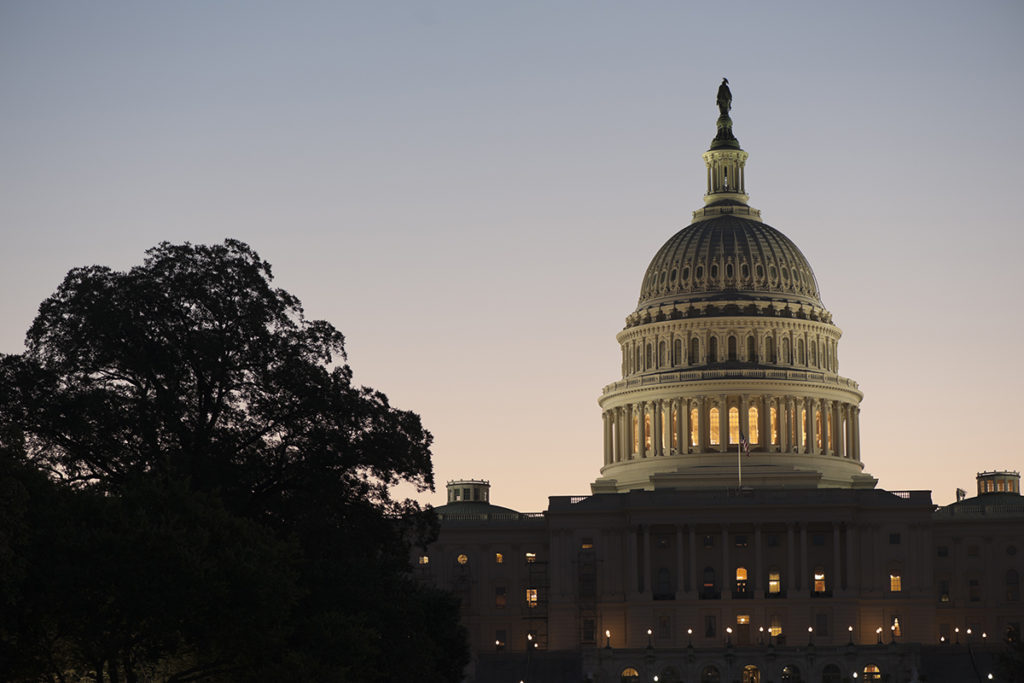
Listen: Electric cooperative leaders discuss the value of the Flexible Financing for Rural America Act
As Congress works to reach agreement on a new COVID-19 relief package, electric cooperative leaders urged lawmakers to include a bipartisan bill that would save co-ops more than $10 billion in interest payments on their federal debt and provide financial relief during the coronavirus pandemic.
“This is a really important issue for rural America,” NRECA CEO Jim Matheson said Monday during a telephone press conference as Congress returned from recess to negotiate a bill. “The rural areas will face the longest effects of an economic recovery and that’s why this legislation is important, both for the situation we face today and for the long run.”
Matheson and three co-op CEOs pushed for lawmakers to pass the Flexible Financing for Rural America Act as part of any broad coronavirus aid package they approve next. The bill, introduced in both the House and Senate on July 2, would allow co-ops to take advantage of current low interest rates to reprice their federal Rural Utilities Service loans without being hit with prepayment penalties.
The legislation could help co-ops and their members survive the financial impacts of the pandemic. NRECA economists estimate that co-ops could lose up to $10 billion in revenue through 2022 as out-of-work consumer-members struggle to pay their electric bills and commercial and industrial customers buy less electricity because of sharp declines in oil, agriculture, tourism and other industries.
Based on current interest rates, NRECA estimates that co-ops could realize a net savings of $10.1 billion from repricing $42 billion of direct and guaranteed RUS loans held by about 500 co-ops. An average co-op with typical RUS debt could save $2 million a year in interest payments if it could take advantage of today’s rates.
The current 20-year U.S. Treasury interest rate is 1.17%. The rates that co-ops are paying varies, depending on when they obtained their loans from the U.S. Department of Agriculture’s RUS program. However, some co-ops are paying rates of more than 5%.
“While homeowners and other private businesses can refinance debt without penalties, RUS borrowers are still required to pay penalties for refinancing,” said Tracy Bensley, CEO of Talquin Electric Cooperative in Quincy, Florida. “We need for Congress to act so that our businesses, like any other business in America, can use these historically low interest rates to help our members, who desperately need any assistance they can receive right now.”
The three CEOs who participated in the media call said they have watched local unemployment rates rise dramatically and businesses struggle with falling revenue amid coronavirus restrictions.
“We’ve seen the unemployment rate more than double,” Bensley said. “Some of these businesses will probably not survive.”
Florida co-ops have almost $1.7 billion in RUS debt and could save more than $400 million over the life of their loans if Congress passes the legislation, Bensley said.
“At Talquin alone, we have about $88 million in RUS debt,” he said. “The Flexible Financing for Rural America Act could save Talquin Electric members between $27 million and $40 million, which equates to somewhere between $1.2 and $2.1 million annually.”
Suzanne Lane, CEO of Kansas Electric Power Cooperative Inc. in Topeka, said the debt repricing bill could save the generation and transmission co-op between $20 million and $25 million in interest on its $82 million in RUS debt.
Randy Hauck, general manager of Verendrye Electric Cooperative in Minot, North Dakota, said the $1 million a year his co-op could save by repricing its $60 million RUS debt would probably allow it to strengthen its infrastructure without having to raise members’ electric bills.
“Without load growth or reducing debt service payments, you cannot make those kinds of improvements,” Hauck said.
Matheson said he has not heard of any opposition to the RUS repricing bill. The legislation was introduced as a standalone bill in each chamber, but it has the best chance of being approved if it’s attached to the sweeping pandemic package, he said.
“The train that’s leaving the station is this broader coronavirus relief package,” he said. “It’s a wonderful opportunity to lay in the economic benefits for co-ops from today’s low interest rates.”
The lead sponsors of the bill are Reps. Tom O’Halleran, D-Ariz., and Vicky Hartzler, R-Mo., and Sens. John Hoeven, R-N.D., John Boozman, R-Ark., Tina Smith, D-Minn., and Kyrsten Sinema, D-Ariz.
Erin Kelly is a staff writer at NRECA.